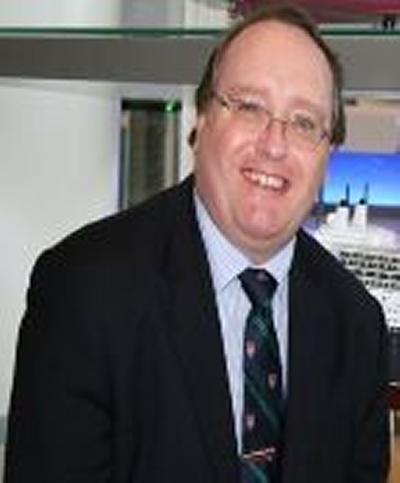BSc Ship Science, 1984

What was your first job after graduation?
Naval Architect at Marconi Radar in November 1984.
What is your current job?
Principal Consultant at PFJ-Maritime Consulting Ltd, starting in June 2011.
What were your main responsibilities and duties in your first job after graduation?
I advised Marconi Radar on aspects of ship motions and ship design in relation to a contract that the company was hoping to secure.
What are your main responsibilities and duties in your current job?
I scout for new business and work with clients giving advice and assistance with various projects. I also give advice to legal teams on matters of ship design, construction and operation where disputes have arisen.
What has been your favourite job since graduation? Why was it your favourite?
My favourite job was with Carnival Shipbuilding where I became Vice President Chief Naval Architect. I was entrusted with the design of the Cunard flagship Queen Mary 2 –I also worked on the contract and negotiations for the ship and was in charge of the construction supervision team.
What have been some of the key moments in your career?
Being given the task of designing Queen Mary 2 was the key moment of my career to date. It opened many doors and I met many interesting people. I was awarded an OBE by Her Majesty The Queen and a “gold” Blue Peter badge from the programme in recognition of the fact that I had written to them when I was twelve announcing that I hoped to design a great passenger liner when I grew up.
Do you feel that the University of Southampton and the course you studied here have helped you in your career?
Most definitely. The technical content of the course has been invaluable –but also the mind set and approach to problem solving.
What advice would you give to current and prospective students who desire a similar career to yours?
Set yourself a goal and never lose sight of it. With determination and drive you can achieve most things. Be sympathetic to others –you never know when you may need to ask advice or assistance
What were your first impressions of the University of Southampton?
The University always struck me as a friendly place. The dept. Ship Science in particular was a very small group that had the feel of a “family”.
What made you decide to study at the University of Southampton?
The number of universities offering naval architecture was limited and I particularly wanted to be near to a passenger shipping port –Southampton is the busiest such port in the UK.
What made you decide to study at the University of Southampton?
The number of universities offering naval architecture was limited and I particularly wanted to be near to a passenger shipping port –Southampton is the busiest such port in the UK.
What made you decide to study your particular course?
When I was seven years old I watched the BBC Children’s programme feature the Cunard liner Queen Elizabeth. It captured my imagination and I started to think about how to design and build such ships from then on. A degree in Ship Science –a fancy name for naval architecture, was a prerequisite to designing passenger ships.
Were you involved in any particular events/experiences/opportunities during your time at the University?
I joined the University Royal Naval Unit (URNU). I wanted to gain experience of how ships behaved at sea, how to steer them and this seemed an ideal way.
What did you do as a student when not studying?
I played squash. My involvement with the Royal Naval Unit took up quite a lot of free time.
What did you like about Southampton as a place to live?
Southampton is well placed for the New Forest and has a host of interesting places within easy reach. Transport links to the rest of the UK are also very good.
What advice would you give to prospective students looking to study your course at the University?
Be prepared to work hard. The course is not a walk in the park and it is designed to challenge you and equip you with the skills that you’ll need in the real world. Many things you study will appear very theoretical but much of it will have real life applications –stick with it and always ask for help if you need it.
What advice would you give to current students studying your course at the University?
Start thinking about what you want to do with your career as soon as possible and plan who you’d like to work with and in what area of specialisation. Set yourself goals and strive to achieve them.
What achievement are you most proud of since graduating?
Designing and building Queen Mary 2.
Are you still in touch with fellow alumni from your time at the University of Southampton?
I regularly meet several of my year group.
Can you sum up your experience at the University of Southampton in three words?
Challenging, worthwhile and engaging.